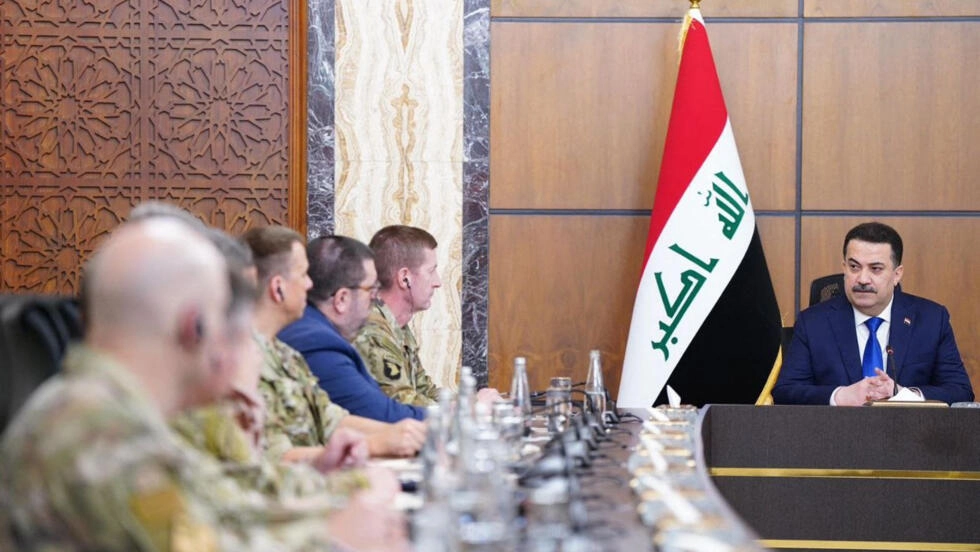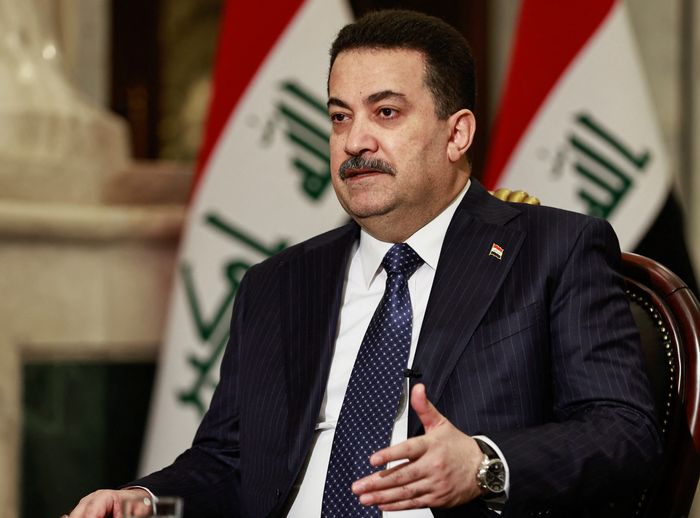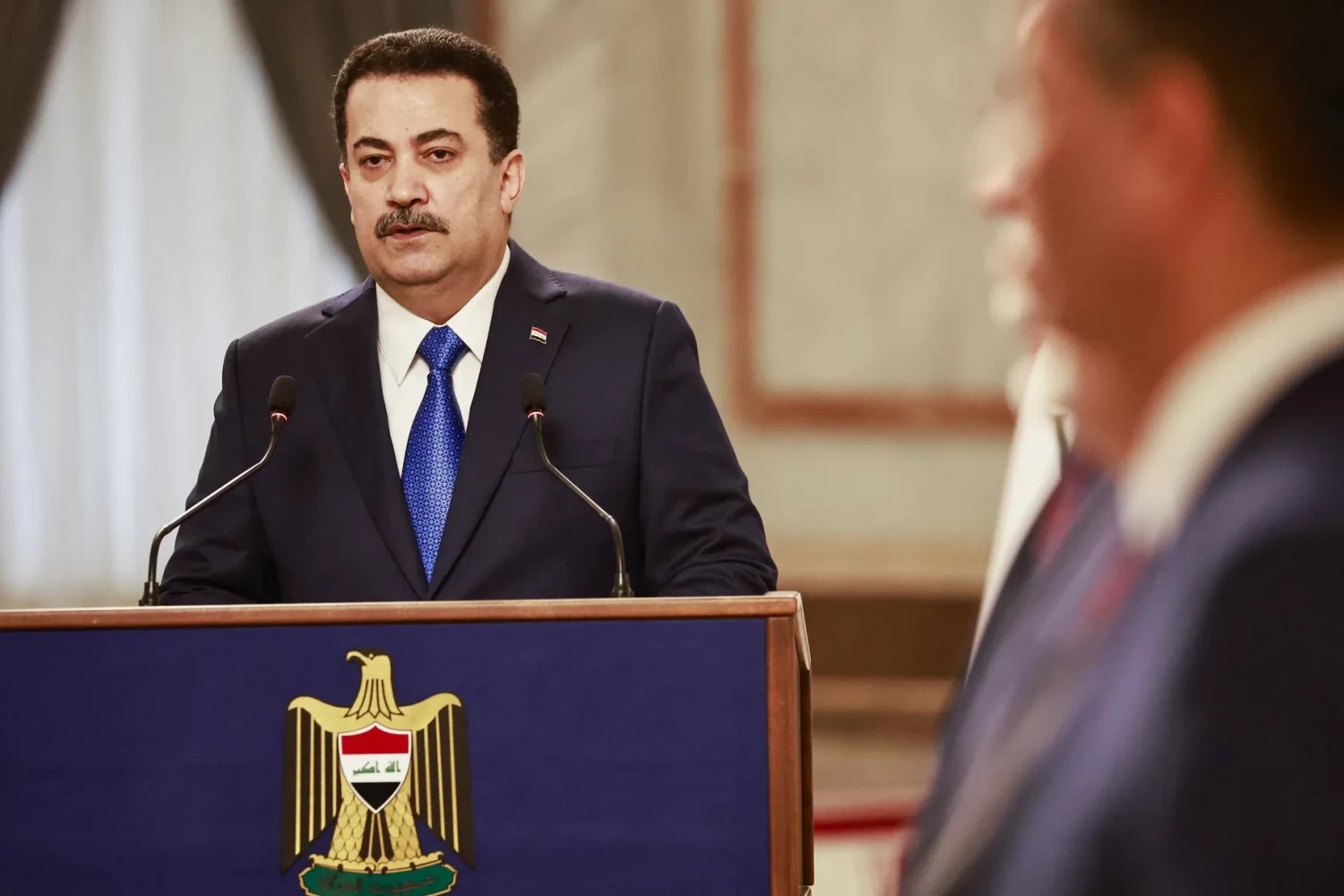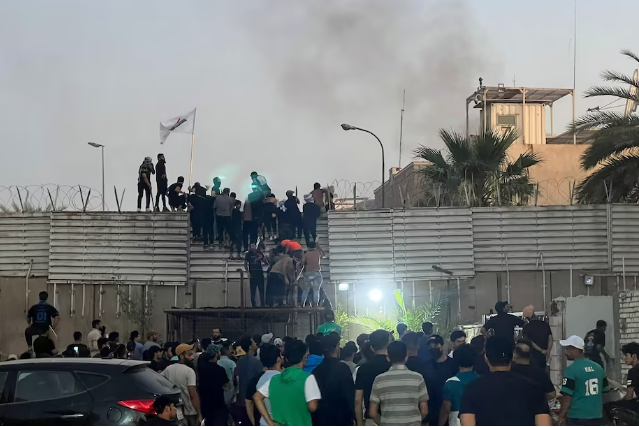This article is more than
8 year oldBombings in Baghdad kill more than 90
At least 91 people were killed Sunday in two bombings in the Iraqi capital, including a large-scale attack claimed by the group Islamic State in Iraq and Syria that killed 86 people — among them 15 children — in a central shopping district, officials said.
The bombings demonstrated the extremists' ability to mount significant attacks despite major battlefield losses, including the city of Fallujah, which was declared "fully liberated" from ISIS just over a week ago.
The deadliest attack took place in the central Karada district of Baghdad, where a suicide bomber blew up his explosives-laded pickup truck outside a crowded shopping centre, killing at least 86 people and wounding up to 170 others, according to a police officer. He said the dead included 15 children, 10 women and six policemen.
The suicide bomber struck shortly after midnight, when families and young people were out on the streets after breaking their daylight fast for the holy month of Ramadan. Most of the victims were inside a multi-storey shopping mall, where dozens burned to death or suffocated, officials said.

"It was like an earthquake," said Karim Sami, a 35-year-old street vendor. "I wrapped up my goods and was heading home when I saw a fire ball with a thunderous bombing. I was so scared to go back and started to make phone calls to my friends, but none answered," the father of three added. He said that one of his friends had been killed, another was wounded and one was still missing.
Within hours, ISIS claimed responsibility for the bombing in a statement posted online, saying they had deliberately targeted Shia Muslims. The Associated Press could not verify the authenticity of the statement, but it was posted on a militant website commonly used by the extremists.

At the scene, firefighters and civilians were seen carrying the dead away, their bodies wrapped in blankets and sheets. Smoke billowed from the shopping center, which was surrounded by the twisted and burned wreckage of cars and market stalls. A group of women were sitting on the pavement, crying for their loved ones.
In the second attack, an improvised explosive device went off in Baghdad's northern Shaab area, killing 5 people and wounding 16, another police officer said. No group claimed responsibility for the attack, but it bore the hallmarks of ISIS militants who often target commercial districts and Shiite areas.
Medical officials confirmed the casualty figures. All officials spoke anonymously because they were not authorized to release information to the press.

The high death toll made it the second deadliest attack in the capital this year. On May 11, ISIS militants carried out three car bombings in Baghdad, killing 93 people.
Hours after the bombing, Iraqi Prime Minister Haider al-Abadi and legsilators visited the blast site. Video footage uploaded to social media showed an angry crowd, with people calling al-Abadi a "thief" and shouting at his convoy. Witnesses said the crowd pelted the al-Abadi's car with rocks, shoes and jerry cans.
Until the government launched its Fallujah operation, the prime minister had faced growing social unrest and anti-government protests sparked, in part, by popular anger at the lack of security in the capital. In one month, Baghdad's highly-fortified Green Zone — which houses government buildings and diplomatic missions — was stormed twice by anti-government protesters.
In Karada civilians expressed their frustration at the government's failure to secure the capital.
"We are in a state of war, and these places are targeted. The security can't focus on the war (against IS) and forget Baghdad," Sami, the street vendor, said.
ISIS still controls Iraq's second largest city of Mosul as well as significant patches of territory in the country's north and west.
At the height of the extremist group's power in 2014, ISIS rendered nearly a third of the country out of government control. Now, the militants are estimated to control only 14 percent of Iraqi territory, according to the office of Iraq's prime minister.
Keywords
<p>They have been blasted from car stereos on the streets of New York City, played by DJs at nightclubs across the US, dubbed into Chinese on TikTok and inspired merengue songs...
Island nation erupts into violence, three dead
Taylor Swift concert photo horrifies internet
Ellen to make TV comeback after two years
Sean 'Diddy' Combs asks judge to reject lawsuit alleging rape of 17-year-old girl in 2003
Ukraine finds itself in a grave situation. Russia appears to be advancing
How the West's plan to punish Russian oil backfired
Will Zionism survive the war?
Putin's Preparing Better Than Us for a Long War
Putin’s choice of new defence minister shows he’s preparing for confrontation with the West




